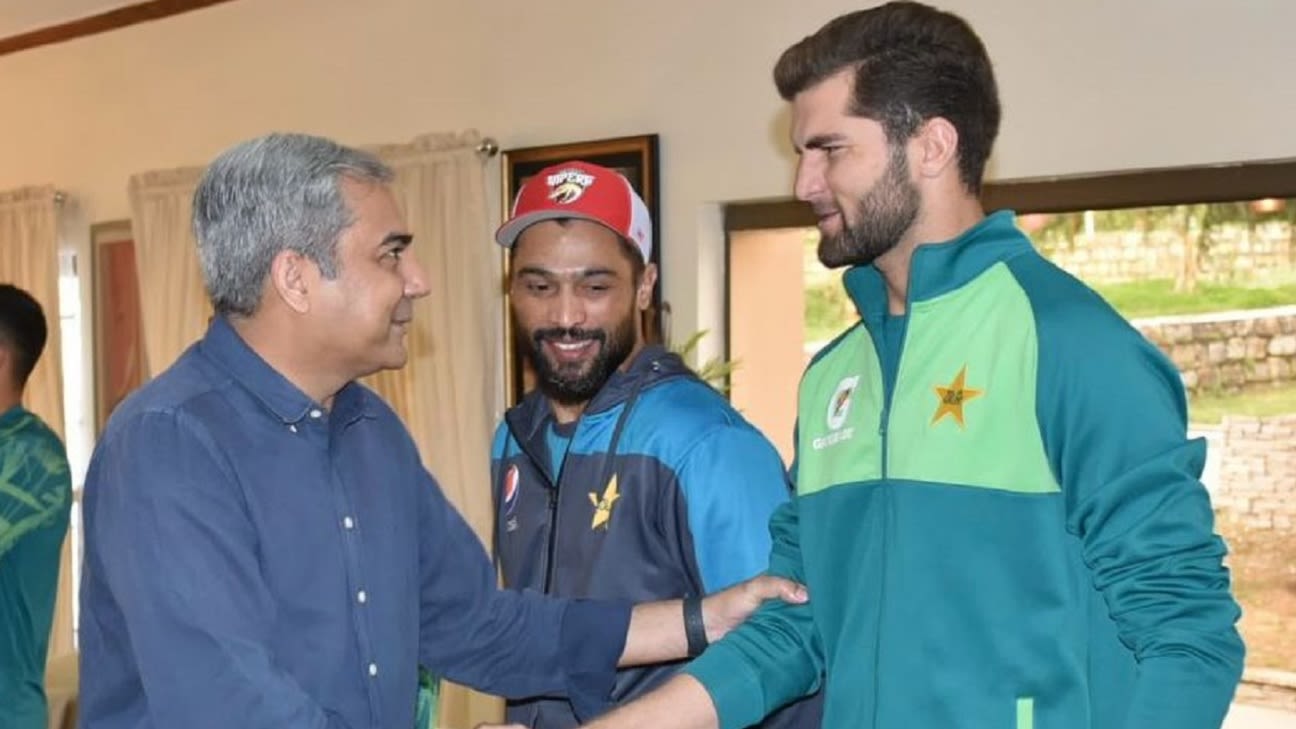Naqvi, who was attributed as saying the Pakistan squad needed “major surgery” following their calamitous T20 World Cup campaign, now appears to feel the systemic strength that would enable such drastic measures doesn’t exist. “The problem is the selection committee has no pool to turn to from which to select players,” he said. “I spoke of surgery because we need to fix our problems. But when we look at how to resolve them, we don’t have any solid data or player pool which we can draw from. The whole system was a mess. The Champions Cup will produce great talent, and we’ll have records for the games that happen. For surgery, you need all the tools to perform it.”
Domestic records do exist in Pakistan, and have been the primary method for selecting international squads. While Naqvi did not offer clarity on specifically the kind of data he wished for, he believed the Champions Cup would provide data and records better equipped to inform future selections, saying the 150 or so players selected for the tournament were largely done through “computers”.
“We had a lot of players for which we didn’t have records,” Naqvi said. “This Cup will make domestic cricket strong, we’ll have a pool of 150 players, and then the surgery we need to be done, the selection committee will do. People said ‘do it all today, slit the throats of four-five players, and get rid of them’. You can’t dump someone unless you have a better one to replace them.
“These 150 players that have been selected, 80% of it has been done by AI (Artificial intelligence), and 20% using humans. Nobody can challenge that. We gave about 20% weightage to our selection committee. If we replace a player with a worse one, you’ll be the first to complain. We’ll have records and we’ll all be able to see transparently who deserves a place in the team.”
With the Pakistan side struggling across formats, the scrutiny on several members of the team has continued to grow. But decades of neglect for the domestic structure, which continues to be chopped and changed depending upon the whims and wishes of whoever happens to be in power at the PCB, has put pressure on the systems designed to bring players through. Two of the top three highest scorers in last year’s Quaid-e-Azam Trophy were veterans Sarfaraz Ahmed and Asad Shafiq, with no player under the age of 25 in the top five. Pakistan have similarly struggled to bring a quality spin bowler through, with Abrar Ahmed the only current viable option with domestic red-ball competitions coming up empty.
“The Champions Cup will end in September, and then there will be records for everyone,” Naqvi said. “Anyone who isn’t performing will be immediately replaced. It shouldn’t come down to anyone’s individual opinions and wishes.”
It is not quite clear how this will happen, though. The upcoming edition of the Champions Cup is a one-day tournament, with Pakistan’s immediate engagement following it a three-match Test series against England. Selecting performers from the Champions Cup would involve calling players up for one format after impressive showings in another, which hasn’t always worked for Pakistan in the past.
Naqvi also attempted to shield the selection committee from blame for Pakistan opting against playing a frontline spinner in the Rawalpindi Test, insisting that was a decision for the captain, coach and team management.
“Losing to Bangladesh is sad but the selection committee had given the team 17 players. If the coach or captain aren’t playing some of them, that’s their decision. The team management may have made a mistake, but that has nothing to do with the selection committee.”
The second Test, which Pakistan must win to avoid a series defeat, will take place from August 30 to September 3 in Rawalpindi.
Danyal Rasool is ESPNcricinfo’s Pakistan correspondent. @Danny61000
Content Source: www.espncricinfo.com

